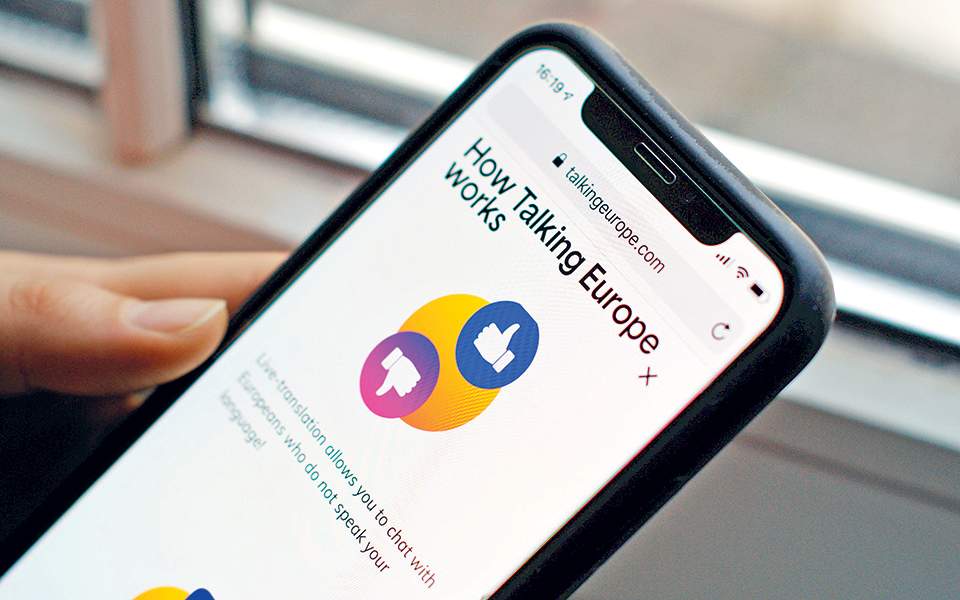Pan-European dialogue made simple thanks to new app

Fake news, anonymous trolls, algorithms that foster echo chambers and promote hate speech: The digital challenges to contemporary public discourse are vast and well-documented. Such is the furor around them that a few analysts have gone as far as to claim that “the internet is drowning today’s democracies.”
However, behind the technophobic sensationalism lie dozens of pioneering digital solutions that not only rectify the challenges of today’s dialogue, but offer new and unprecedented ways for political discussion. One of the most ambitious is Talking Europe, a platform that aims to facilitate a pan-European dialogue across language barriers and conflicting opinions.
With a modern and minimalist design, the app welcomes users with a series of core ideological questions, such as “Should every country hold a referendum on EU membership?” or “Do you support an immediate ban on plastic?” After a few clicks, participants are matched with a citizen from another European country who holds a different political opinion, while live translation software enables them to discuss issues together in their native languages.
Without fear of the public eye and the incentive of online self-promotion, users participate in a closed, one-to-one political dialogue, exchanging views and perspectives and bridging their differences in a civilized manner.
“The idea dates back to 2017, and was conceived in the context of the German elections,” says Malte Steuber, Talking Europe’s project coordinator. “Together with five friends, we were witnessing public discourse being restricted to political and social filter bubbles online. Since it was a predominantly digital problem we thought the solution should also be a digital one,” he adds.
Steuber and his ambitious team released a pilot version of their app just a few weeks before the 2017 German elections. Exceeding all expectations, more than 20,000 users heeded their call for a civilized exchange of opposing views.
Inspired by the public’s warm response and aided by the leaps in modern-day translation software, the platform’s creators decided to take their effort to a European level. On April 24, 2019 – a month before the critical upcoming European elections – they released Talking Europe, and in just a few days they managed to forge a loyal user base across the continent.
“We simply thought that if we were able to penetrate political echo chambers, then our next natural step would be to target national ones,” comments Steuber, encouraged by the positive early feedback the platform has been receiving. “Users seem to really enjoy debating core issues with citizens from different countries, all from the ease of their phone while commuting to work,” he adds.
The team behind Talking Europe radiates dynamism and ambition; after the completion of the European elections, they intend to collaborate with different media partners and bring their innovative model of online dialogue to comment sections below articles.
While it is still too early to assess the platform’s impact on a pan-European dialogue, Talking Europe offers a promising start for a future where technology embraces diversity, pluralism and civilized public discourse.





